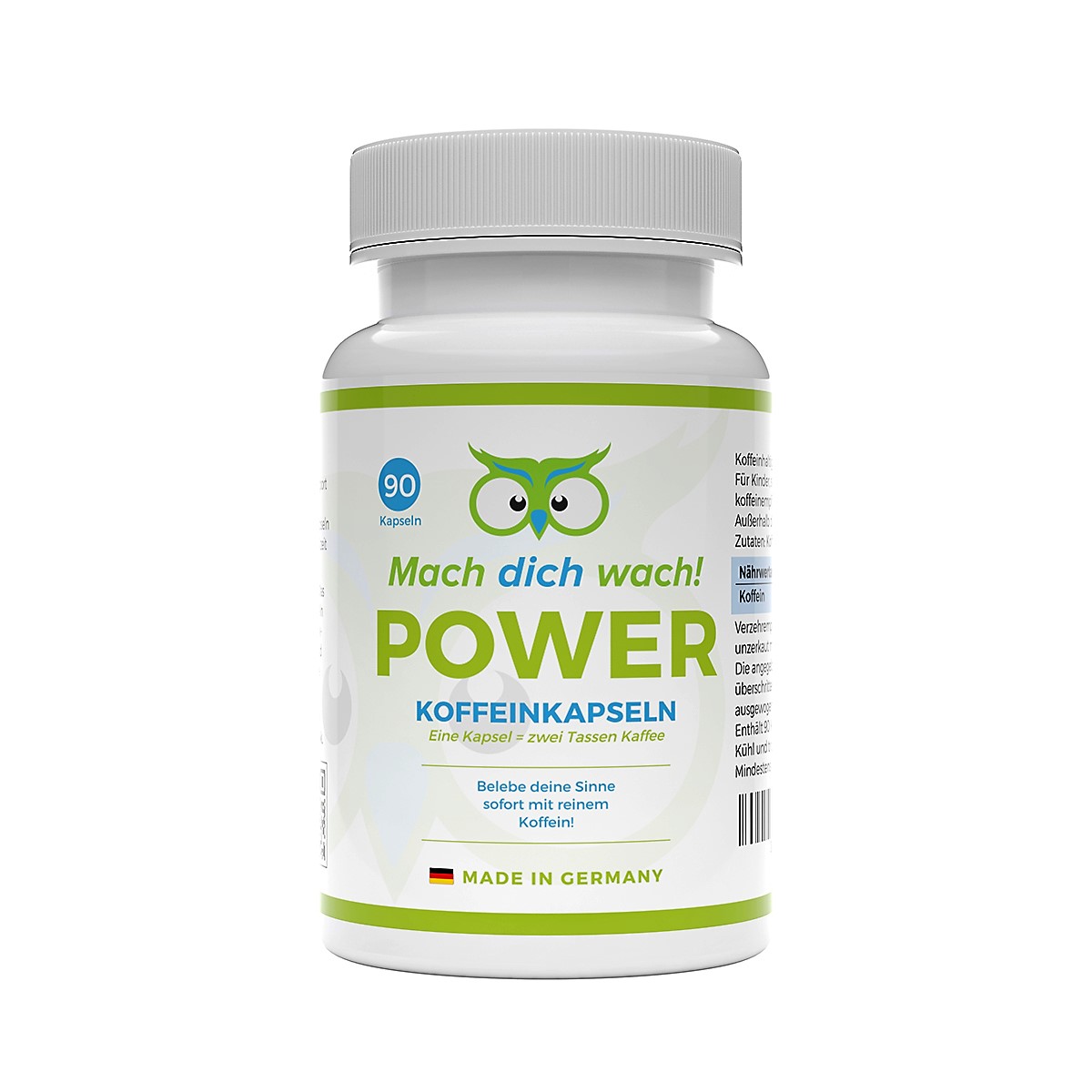

Team Vitamin Owl
Questions, wishes or suggestions? Simply contact us by e-mail or on Facebook.
1. how can caffeine be broken down faster in the body?
Like alcohol, caffeine is broken down via the liver. Since the liver is well supplied with blood and the body's blood circulates, the caffeine is also processed there. The enzyme cytochrome from the liver deactivates the caffeine so that it can no longer reach the receptors of the nerve cells. The caffeine is then excreted via the urinary tract. Caffeine usually has a half-life of four hours. Normally, the effect of the caffeine usually wears off after three to four hours. In order for the caffeine to be broken down more quickly in the body, more water should be drunk. The liquid stabilizes the circulation and can prevent possible dehydration.
Substances such as alcohol and smoking accelerate the breakdown of caffeine, as they stimulate the organism to produce more cytochrome.
2. what is caffeine?
Caffeine is a substance from the stimulant group. It is a white, odourless powder which can be produced from various plants or synthetically. It brings a bitter taste with it, which has a crystalline structure. More than 60 plants contain caffeine, such as the coffee bush or tea bush. Caffeine has a special effect on many areas of the human organism. It has a positive effect on the central nervous system, increases the heart rate when taken. Caffeine also dilates the blood vessels and bronchial tubes. Since caffeine can supply the muscles with more oxygen, it increases the burning of fat. Many studies prove a performance-enhancing effect in the area of strength and endurance sports.
3. areas of application of caffeine
- Caffeine improves concentration
- Caffeine eliminates symptoms of fatigue
- Caffeine increases the storage capacity of the brain
- Caffeine increases the pulse and blood pressure
- Caffeine has a positive effect on athletic performance, as the muscles can be better supplied with oxygen
4. what are the side effects of caffeine?
Caffeine in itself does not cause any side effects, except increased urination, as caffeine is a driving force. Side effects often only occur with high amounts of caffeine.
Side effects from excessive amounts of caffeine can be
- Irritability
- Nervousness
- Weld outbreaks
- inner turmoil
- Insomnia
- Stomach complaints
Pregnant women, nursing mothers and people who are sensitive to caffeine should avoid caffeine. Likewise, people with cirrhosis of the liver, cardiac arrhythmia, hyperthyroidism or anxiety syndrome should consult a doctor before taking any caffeine products in order to rule out any risks.
Our recommendation:
Vitamin Owl® Caffeine Capsules
In our online shop you will find our caffeine capsules from Vitamineule®, which are completely free of artificial additives. Vitamineule® Caffeine Capsules contain 200 mg pure caffeine per capsule. Each can contains 90 capsules. Besides fast & free shipping, we offer a voluntary six-month return guarantee for all products.
5. conclusion
The half-life of caffeine is about four hours. This time can be shortened by supplying the human organism with plenty of liquid. This stabilizes the circulation and protects against possible dehydration. Caffeine has a positive effect on humans in many different ways. For example, it improves the storage capacity of the brain and helps it to concentrate better. Anyone who would like to take in caffeine can supplement caffeine in the form of food supplements. You can choose between caffeine capsules and caffeine tablets.
Further sources:
- Coffee and cancer risk: a summary overview
- Coffee and its consumption: benefits and risks
- Are coffee's alleged health protective effects real or artifact? The enduring disjunction between relevant experimental and observational evidence
- The dynamics of coffee production in Brazil
- Caffeinated and decaffeinated coffee consumption and melanoma risk: a dose-response meta-analysis of prospective cohort studies
- What every dentist should know about coffee

